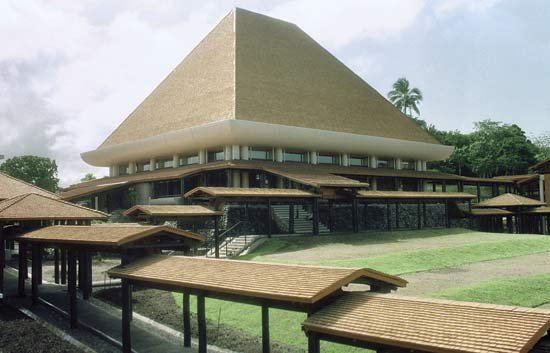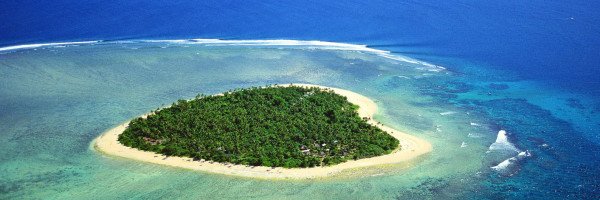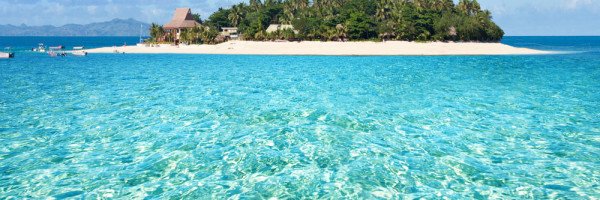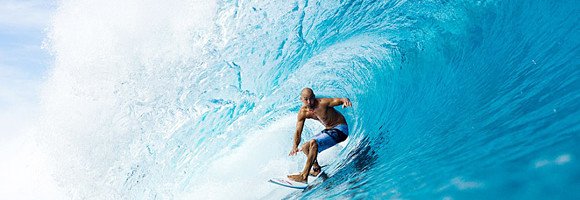The Origins of Fijian Mythology
Fijian mythology is a rich tapestry woven with tales that explain the origins of the islands, the gods that inhabit them, and the customs that guide the lives of the people. The myths often reflect the deep connection that the Fijians have with nature, as well as their understanding of the cosmos. One popular creation story involves the god Degei, who is said to have formed the islands from the sea and populated them with the first inhabitants. This story not only illustrates the spiritual beliefs of the Fijians but also emphasizes their intrinsic bond with the land. For those interested in exploring these narratives further, resources about the Fiji Islands offer insights into how these legends shape contemporary Fijian identity.Significant Deities in Fijian Culture
Fijian mythology features a pantheon of deities, each representing different aspects of life and nature. One of the most revered is Ndengei, the god of creation, who is often depicted as a serpent. Ndengei is believed to have the power to control the elements, influencing weather patterns and agricultural cycles. The worship of these deities is still evident in modern-day rituals and festivals, which serve to reinforce community bonds. For New Zealanders interested in indigenous cultures, comparing the significance of deities in Fijian society with those in Māori mythology can provide valuable perspectives on how cultures interpret their environment through spiritual narratives.Fijian Legends of Heroism
Among the most celebrated narratives in Fijian mythology are those of legendary heroes, such as the tale of the warrior Tui Viti. His adventures showcase bravery, cunning, and an unwavering commitment to his people. These legends often serve as moral lessons, teaching values such as loyalty, perseverance, and respect for nature. Understanding these stories is crucial for grasping the essence of Fijian cultural heritage. New Zealanders might find parallels in their own legends, such as those of Māui, who is renowned for his cleverness and heroism. By exploring these shared themes, it’s possible to appreciate the universal values that resonate across the Pacific.The Role of Ancestors in Fijian Mythology
Ancestral worship is a vital aspect of Fijian culture, with many myths revolving around the spirits of ancestors who continue to guide and protect their descendants. The concept of ‘vanua’ encompasses the land, the people, and their ancestors, creating a holistic view of community and identity. The Fijians believe that the ancestors reside in sacred places, and rituals are performed to honor them. This connection to ancestry is similar to Māori traditions in New Zealand, where ancestral ties shape identity and cultural practices. Engaging with the rich Fijian Islands heritage provides a deeper understanding of how these beliefs are lived out today.The Influence of Fijian Legends on Modern Life
Although rooted in ancient times, Fijian legends continue to influence modern society. Storytelling remains an essential part of Fijian culture, with elders passing down tales to younger generations. These stories often inform contemporary art, dance, and music, helping to preserve and promote Fijian cultural heritage. For those in New Zealand, there are opportunities to explore similar practices, such as kapa haka, which also emphasizes the importance of storytelling and cultural preservation. By participating in these activities, individuals can forge a deeper connection with their own heritage while appreciating the richness of Fijian traditions.Festivals and Celebrations Inspired by Fijian Myths
Festivals in Fiji are vibrant celebrations that often draw on mythological themes. Events such as the Hibiscus Festival celebrate the island’s rich cultural history, featuring performances that depict legendary tales and honor the gods. These gatherings foster community spirit and reinforce cultural identity among the Fijian people. For New Zealanders, engaging in similar cultural festivals can provide a sense of belonging and an opportunity to reflect on their own traditions. Exploring the Fiji Islands during such events can offer a unique lens into how mythology continues to shape communal experiences.The Intersection of Fijian Mythology and Cultural Identity
Fijian mythology is not merely a series of stories; it is a vital component of the national identity of Fiji Islanders. These legends shape societal values, community relationships, and personal identities. By understanding the intricate narratives that have developed over centuries, one can appreciate the depth of Fijian cultural heritage. For New Zealanders, recognizing the importance of mythology in shaping identities can be beneficial in fostering cross-cultural understanding. Exploring the stories of both cultures can unveil common threads that unite Pacific peoples, encouraging mutual respect and appreciation for diverse traditions.FAQs
What is Fijian mythology?
Fijian mythology encompasses the rich tapestry of stories, legends, and beliefs that have been passed down through generations among the Fijian people. These narratives often explain natural phenomena, cultural practices, and the origins of the Fijian islands, forming an integral part of Fijian cultural heritage.
How do Fijian myths influence contemporary culture?
Fijian myths play a significant role in shaping contemporary culture by influencing art, dance, music, and storytelling traditions. They serve as a source of inspiration for modern Fijian artists and performers, reinforcing cultural identity and community values among Fiji Islanders.
Who are some prominent figures in Fijian mythology?
Prominent figures in Fijian mythology include the god Degei, who is often associated with creation and the natural world, and the goddess of the sea, Nguva. These figures represent fundamental aspects of Fijian cultural heritage, embodying the connection between the people and their environment.
What themes are commonly found in Fijian legends?
Common themes in Fijian legends include the importance of community, respect for nature, the power of the gods, and the consequences of human actions. These themes reflect the values and beliefs that shape the identity of Fiji Islanders and highlight the significance of cultural heritage in their lives.
Are there any specific rituals associated with Fijian mythology?
Yes, various rituals are associated with Fijian mythology, such as the traditional meke dance and the offering of kava during ceremonies. These rituals often honor mythological figures and are a way for Fiji Islanders to connect with their cultural heritage and reinforce their communal bonds.
How do Fijian myths and legends contribute to the identity of Fiji Islanders?
Fijian myths and legends contribute significantly to the identity of Fiji Islanders by providing a sense of belonging and continuity. They encapsulate shared histories, moral teachings, and cultural practices that unite the community, helping to preserve Fijian cultural heritage in the face of modern influences.
Where can one learn more about Fijian mythology?
To learn more about Fijian mythology, one can explore local libraries, cultural centers, and museums in Fiji, as well as academic publications and online resources. Engaging with elders and community leaders can also provide valuable insights into the rich narratives that form a core part of Fijian cultural heritage.
References
- Fiji Islands – An official tourism site that offers insights into Fijian culture, including mythology and legends that shape the identity of the Fiji Islanders.
- World History Encyclopedia: Fiji – This source provides an overview of Fijian history and culture, highlighting important myths and legends that have influenced the islanders’ identity.
- Encyclopedia Britannica: Fiji – A comprehensive resource that covers Fiji’s cultural heritage, including its myths and legends that reflect the beliefs and values of the Fijian people.
- ResearchGate: Fijian Mythology and Legends – An academic paper that delves into various aspects of Fijian mythology, exploring how these stories contribute to the cultural identity of the islanders.
- Fiji Guide: Fijian Mythology – A detailed guide that explores the rich tapestry of Fijian myths and legends, showcasing their significance in shaping societal values and cultural identity in Fiji.







